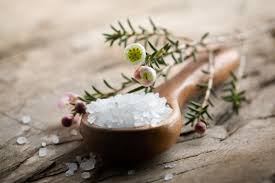Fasting is an age-old practice that involves break from food and drink for a specific period of time, often for health, spiritual and fitness goals. People fast because it has many advantages like detoxification, weight loss etc. There are many times of fasting. People choose to fast for 12 hours, 48 hours and so on. Since we avoid all food when it comes to fasting, a question that arises in people’s mind is does salt break fast?
The answer is NO! salt doesn’t break fast.
In this article we will discuss whether salt will break fast? how much salt your body needs, how much salt you can have in fasting? and what happens if you don’t get enough salt so let’s start.
Does Salt break a Fast?
Salt, in most cases, does not break fast in the traditional sense, especially if consumed in small amounts. The primary purpose of fasting is to refrain from consuming calories, and salt does not contain any significant calories or carbohydrates. Therefore, adding salt to water or consuming it in small quantities is generally considered acceptable during fasting, particularly when aiming to maintain electrolyte balance and prevent dehydration.
No, Salt does not break fast. The primary purpose of fasting is to restrict calories intake and salt does not include any calories or carbohydrates. Adding salt in water and consuming it in fasting can help in maintaining electrolyte balance and also prevent dehydration.
However salt itself doesn’t break fast but adding flavored salts or other mix alternatives can break your fast. If you consume a lot of salt it can result in thirst or leads to water retention.
In the context of intermittent fasting (IF), consuming minimal salt (such as in the form of electrolyte supplements or as seasoning) is usually fine and can even support the body’s ability to manage the side effects of fasting, such as headaches or dizziness. Ultimately, whether salt breaks a fast depends on your specific fasting goals and the type of fast you are following.
List of Minerals Found in Salt?
Here is a list of numbers of mineral that can be found in salt:

The Essential Role of Sodium(Salt) In our Body
Sodium commonly known as salt when it gets combined with chloride, a vital mineral that plays many essential roles in maintaining proper body function of a human body. On the other hand people focused on reducing sodium from their diet as it has health concerns like high blood pressure, while it can’t be harmful if you take it in moderate quantities. Here are some key roles of sodium in the body as follow:
Sodium helps in maintaining the balance of fluids in and around the cells, tissues, and organs. It helps in regulating water present in the body. Sodium also plays an important role in water movement in and out of cells.
The main focus of sodium is to help in proper functioning of the nervous system. and muscle functions including the contraction of muscles and cardiac muscles.
IF you take high amounts of sodium it can be disturbing but if you take sodium in a moderate amount it can be helpful for your health like maintaining healthy blood pressure.(hypotension).
Sodium chloride (salt) helps keep the pH within a narrow range, ensuring that the body’s metabolic processes function optimally.
Sodium plays an important role when it comes to digestion, as it is necessary for absorbing certain nutrients which result in efficient digestion and energy production.
Sodium also helps in kidney function, It helps the kidney in order to maintain fluids, electrolytes, and waste products, which is essential for overall health.
What happened if Intake of Sodium is low?
If you don’t consume salt in a enough quantity, It can leads some serious health concerns as without sodium which is present in salt a body start having issues due to electrolyte imbalance as sodium is essential for several critical function from muscle to the nervous function, balancing fluid, movement of body and regulating blood pressure. Here’s what can happen when sodium levels fall too low:
Conditions like Hyponatremia occur when sodium levels drop below the normal range that is 135 to 145. The main cause of this condition is consuming low salt and excessive water, well low salt can also lead you to salt deficiency. Here’s what can happen when sodium levels fall too low:
- Dehydration and Fluid Imbalance
- Muscle Cramps and Weakness
- Nausea and Vomiting
- Headaches and Dizziness
- Low Blood Pressure (Hypotension)
- Increased Risk of Kidney Dysfunction
- Hormonal Disruptions
- Severe Cases: Seizures and Coma
All these symptoms indicate signs of salt deficiency, mostly occurring when your sodium intake is less than 6 grams a day.
When Consuming more Salt on Fasting is important?
Fasting with salt can lead you to some good effect, When fat especially if it is a intermittent fat (24-48 hours), it is very important to pay attention to your electrolyte balance and salt intake the reason is during fast your body can do some changes in water processing along with potassium, sodium and electrolyte. If you don’t consume enough sodium it can lead to electrolyte imbalance which can cause issues like headaches, dizziness, muscle cramps, or fatigue. Using salt helps in maintaining sodium levels and promotes proper electrolyte functioning. It helps in boosting energy levels especially during fasting.
How does sodium help in preventing fasting flu? Well when you fast, the body goes into a state called ketosis and glycogen stores in your liver are consumed this can lead to water and electrolyte loss. In this process your body excretes more water and loss of important minerals especially sodium take place which later results in “fasting flu,” which includes fatigue, headaches, and irritability. Using salt can help you to stay away from fasting flu.
During a fast you body may have issues to maintain sodium levels because of fluid and electrolytes loss. This can result in muscle cramps, weakness, or spasms so In order to avoid such issues increase intake of salt.
During fast your blood pressure can be drop due to no food consumption and water loss. Increase intake of sodium as it can stabilize blood pressure.
How to Use Salt While Fasting?
In order to maintain proper sodium levels during fasting all you need to do is add a pinch of salt in water (mineral water) full of electrolytes and consume it. You can also go for electrolyte supplements and add the same 1 pinch of salt in it. Although it is very important to consume salt on a moderate level as consuming too much salt can lead to health issues like high blood pressure etc but taking moderate amounts of salt during fast is beneficial.
How to Avoid the Side Effects of Too Much Salt
- Try to read food labels especially on items like processed and packaged foods.
- Prefer to eat home based meals as you will know how much salt you consume.
- Avoid food items like canned soups, snacks, fast food, and frozen meals as they are high in sodium.
- Use herbs and spices as salt replacing in your meal like in salads.
- The key to healthy life is staying hydrate so consume as much water as you can.
Does Salt break Autophagy?
The answer is Yes! high intake of salt can leads to autophagy. Autophagy is a condition in which the body breaks down and eliminates damaged cells, and it gets active especially during fasting or nutrient deprivation. This can usually occur when intake of food is zero which results in insulin release. High intake of salt can lead to impaired autophagy while moderate consumption of salt can be good for autophagy. A healthy balanced diet is also good for autophagy and for overall health.
Conclusion
In conclusion of Does salt break a fast? The answer is obviously No! However It also depends on the type of fast and its specific rules. For most fasting protocols, small amounts of salt, especially if taken in the form of electrolytes or added to water, do not break the fast, as they typically contain little to no calories. In fact, consuming salt during a fast can help maintain electrolyte balance, prevent dehydration, and alleviate symptoms like headaches and fatigue.
Also Read: Understanding the Ketovore Diet: Benefits, Foods, and Guidelines


